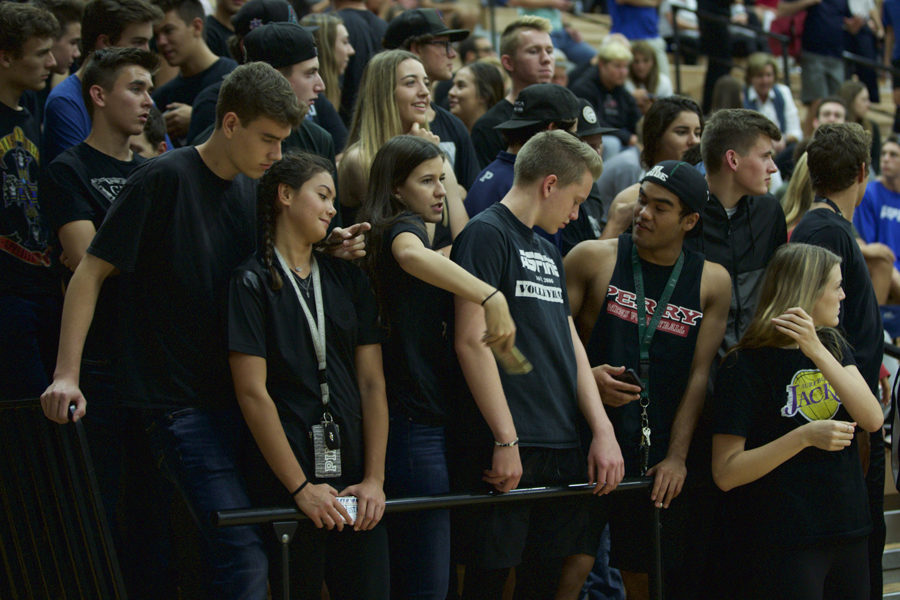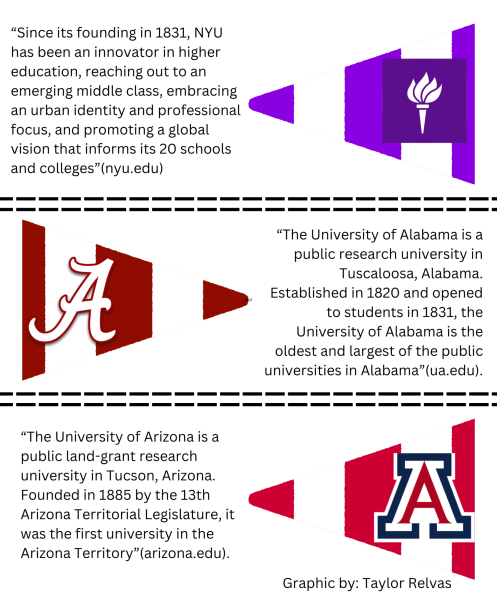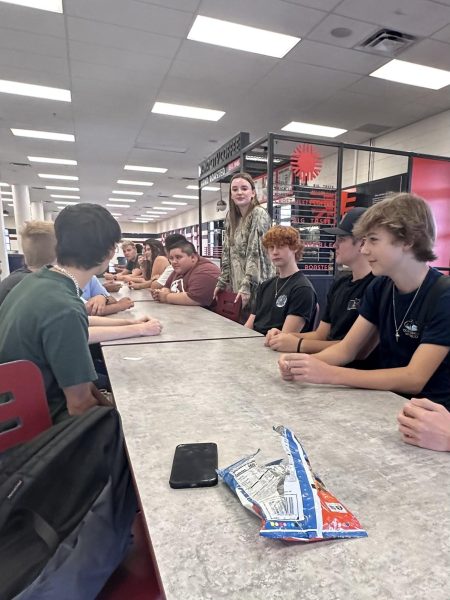The Sacrifices Made For High School Football
Students wait for the final game in the 6A state semifinals
Extracurricular make up a significant percentage of the so-called high school experience.
One specific activity that certainly receives a particular amount of attention is the notorious high school football team.
Fridays would not be the same without the mass amounts of students pouring into the football stands; ignoring the scoreboard and instead flirting with fellow peers.
The football team has a tradition of representing a school; as well as protecting an image. A stellar team can offer undeniable advantages: more students and more money.
There is a value associated with high school sports, no doubt about that.
The pro-football webpage Stack, would argue that “[high school football] is a magnetic force” and unifies students by “transcending societal differences.”
It might be a stretch to credit football with such humanitarian practices; however, the sport has its positive attributes.
Sports, specifically football, have embedded their way into the hearts of American students. But when did this idealization of an extracurricular begin to dictate high school?
The Atlantic points out that the United States routinely spends more tax credit dollars on high school athletes than math students, and the United States wonders why it’s ranked 17th out of 40 countries in terms of educational performance.
And yet, there’s more attention paid to the football team than any other on-campus activity.
What makes a bleacher coated in gum, shoe marks, and sweaty bodies so desirable on a Friday night?
I asked students, many of them friends, what the value of high school football was.
The replies were unanimous.
There were a lot of chirpy responses praising school pride and community. Football is a cheap form of entertainment for highschool students and provides them reliable plans once a week.
However, this idealization of the team is unhealthy.
Camryn Munoz, a junior varsity cheerleader, is more reserved regarding the over-hyped sport.
“I recognize that sports are rewarded for their achievements more than academics,” the co-captain explained, “I think it’s time for society to open its eyes to individuals that truly make a difference.”
High School sports are just not worth the sacrifice of educational and academic experience. This is not a call for a ban on all football; but simply a response to the overlooked and underappreciated components of highschool.
Students would be better suited if they attended school for an education and an off-campus practice for all their sports needs.

Hannah Knight is a junior in the introduction to journalism class. She enjoys incorporating current events and politics in her writing. Knight is a student...





